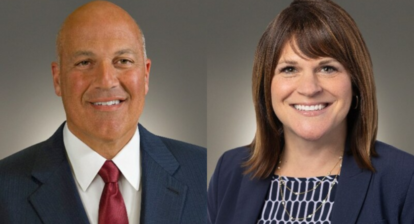After almost 80 years in business, paints and coatings manufacturer and retailer Kelly-Moore Paint Company has immediately shut down and closed its stores nationwide. The company says that a cash drain caused by legal settlements regarding asbestos, legal liabilities inherited by its current ownership group and supply chain challenge investments have led to its “inability to fund its continued operations.”
The news arrived less than a week after the company revealed that it was laying off about 700 workers while also temporarily halting operations at its Hurst, Texas, manufacturing plant.

Acquisition, Recent Layoffs
In October 2022, global investment firm Flacks Group announced the acquisition of the Kelly-Moore Paint Company. The purchase included 157 Kelly-Moore Paints retail stores across California, Nevada, Oklahoma and Texas, in addition to manufacturing facilities in Hurst, Texas.
At the time, the company earned more than $400 million in annual revenues and employs 1,200 workers. According to Flacks Group, the acquisition was part of the investment firm’s multi-stage investment thesis around industrial companies with strong manufacturing footprints and global distribution. The acquisition, when combined with its existing portfolio company Germany-based Pleuger Industries, aimed to put Flacks Group’s industrial vertical on track to exceed $1 billion in revenues in the next two to three years.
Financial terms of the transaction were not disclosed.
Then, in April last year, Kelly-Moore announced that it would be moving its headquarters from Northern California to Irving, Texas.
“We’re excited to join the Irving-Las Colinas community and to offer our employees a great quality of life in a vibrant city,” Kelly-Moore CEO Charles Gassenheimer said at the time.
Gassenheimer told Dallas Innovates that Kelly-Moore was moving 30 employees from California and from its manufacturing facility in the DFW suburb of Hurst to support the Irving HQ’s operations.
“We plan to grow the workforce in Las Colinas by an additional 40 people over the next two years,” he added. The HQ move, he continued, and Kelly-Moore’s expanded focus, was anticipated to lead to more activity at the plant in Hurst.
“We’re expanding beyond the contractor channel, where we’ve always been strong, to focus on bringing our high quality products to other channels, like interior design and architecture,” Gassenheimer said. “Through growing our footprint, we’ll be able to increase the total gallons produced each year and therefore more fully utilize our Hurst manufacturing plant.”
However, on Jan. 8, The Dallas Morning News reported that the company would be laying off about 700 workers, as well as temporarily halting operations at its Hurst manufacturing plant. Kelly-Moore said that it was seeking new investors for the company, but will continue to fill paint orders from inventory.
Most Kelly-Moore retail stores would remain open, the company said at the time.
“I am saddened by having to furlough valued employees, and our sympathy goes out to each of them during what we hope will be a temporary, short-term absence while we seek new capital,” Gassenheimer said in a statement. “This was an important and necessary step as we deal with pressing financial issues and try to preserve all our options.”
Kelly-Moore retained Houlihan Lokey as its financial adviser.
Unexpected Closing
However, in a Jan. 12 statement, the company said Chapter 11 bankruptcy was not a viable option, and that after fulfilling existing orders, Kelly-Moore will cease operations permanently.
“I'm extremely disappointed and saddened by this outcome, as the entire Kelly-Moore team made incredible efforts to continue innovating and serving the unique needs of professional painting contractors,” said Gassenheimer. “The ownership group’s commitment from day one was to fix the business if we could. Sadly, no matter how great the Kelly-Moore team, products and reputation for service, we simply couldn’t overcome the massive legal and financial burdens that have been weighing on the Company for many years.”
Orders will attempt to be completed to the extent possible from existing inventory in Kelly-Moore’s Union City, California, distribution facility. All other facilities, including the Hurst plant and all retail stores, were permanently closed effective immediately. According to the company, Kelly-Moore employees will be fully compensated for regular time worked, and management will continue its efforts to collect receivables to pay all accrued benefits including Paid Time Off.
“I could not be prouder of what our talented team accomplished under extremely challenging circumstances,” continued Gassenheimer. “My deepest sympathy goes out to our loyal employees, customers, industry partners and the communities where we do business, who have supported Kelly-Moore throughout its long history. Unfortunately, this was the only viable alternative remaining for us after evaluating all other potentially feasible options.”
Kelly-Moore explains that for over 30 years, it has been grappling with thousands of asbestos litigation claims related to the company’s past use of asbestos in cement and texture products under prior ownership. Despite reportedly paying out approximately $600 million over the past 20 years to settle asbestos claims, a recent study commissioned by the company estimated future asbestos liabilities exceeding $170 million.
Additionally, Kelly-Moore says it has been impacted by insurmountable legal liabilities inherited by the current ownership group from their 2022 acquisition of the Company, including millions of dollars of previously unpaid sales and use taxes. The company notes it is pursuing its legal rights with respect to these claims.
Gassenheimer was appointed following the acquisition to evaluate and implement strategies for improving the company’s dire financial position by enhancing its reach and market share. This reportedly included starting the process of relocating the Company’s headquarters from California to Texas, exploring new supply-chain partnerships domestically and abroad, planning strategic technology and store upgrades, and resolving a sizeable portion of the pending asbestos claims.
They also engaged and worked with outside professional advisors to assess and improve its liquidity position, exploring various options for new funding sources or partnerships to avert a wind-down. Advisors also conducted a process that included pursuing opportunities for new capital investment, a potential sale, merger or reorganization.
However, largely due to the asbestos litigation overhang Kelly-Moore says, it was impossible to attract any additional funding or interest to recapitalize, restructure or reorganize the business.
“Our owners took on significant financial risks in the acquisition last year,” continued Gassenheimer. “Unfortunately, despite their extraordinary efforts after acquiring this distressed business, they simply couldn’t overcome the unexpectedly large challenges, and will be exiting the business.”




